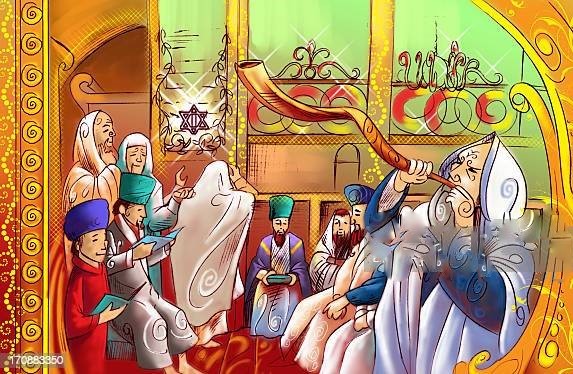SATURDAY PRAYER: NETZACH-YESHIVAT HAVERIM יְשִׁיבָה חברים – BABYLONIAN TALMUD p103

READING: BETWEEN MIDNIGHT TO SUNRISE SATURDAY
On this point the following Tanaim differ. R. Meir says: They (who were Levites themselves)
claimed their priestly allowance personally (and thereby deprived the poor priests and Levites of
their shares, for being also judges they were never refused). R. Jehudah says: They had
commercial relations with private people (and were sometimes compelled to pervert justice). R.
Aqiba says: They took tithes (to a greater extent than they were allowed to do) by force. R. Jossi
says: They took by force the (priests’) portions (shoulder-blades, jowls, and stomachs of a
slaughtered animal).
He said again: “The same error is made concerning David.” Said Rabh: Rabbi, who is a
descendant of the house of David, endeavored to interpret favorably the passage: “Wherefore
hast thou despised the word of the Lord to do what is evil in his eyes?” [II Samuel, xii. 9]. He
said: This evil deed is different (in words and language from other evil deeds whereof mention
is made in the Scriptures). In all other instances it says, “and he has done,” but here it says, “to
do.” This implies that he “wanted to do” (but did not do). “Uriah the Hittite thou hast slain with
the sword” [ibid., ibid.]. (As a rebel) he should have had him tried by the Sanhedrin, which he
did not. “And his wife thou hast taken to thee for a wife.” He had a right to her, for R. Samuel b.
Nahmeni in the name of R. Jonathan said: Whoever went to war with David divorced his wife
previously. “Him thou hast slain with the sword (used) for the children of Amon.” As he will not
be punished on account of the children of Amon, so will he also not be punished for the death of
Uriah. What is the reason? He (Uriah) was a rebel.
Said Rabh: “Note well the life of David, and you find nothing blamable save the affair of Uriah,
as it is written [I Kings, xv. 5]: “Save only in the matter of Uriah the Hittite.”
Abayi the elder has contradicted the above statement of
[paragraph continues] Rabh from his own statement elsewhere that David accepted slander? This
difficulty remains. What was it? That which is written [II Samuel, ix. 4]: “And the king said
unto him, Where is he? And Ziba said unto the king, Behold, he is in the house of Machir, the
son of ‘Ammiël, in (b’) Lo-debar”; farther on it is written [ibid. 5]: “And David the king sent,
and had him taken out of the house of Machir, the son of ‘Ammiël, from (m’) Lo-debar.” 1 Thus,
when David found him “doing something (good),” whereas Ziba informed the King that he was
“doing nothing (good),” hence David was convinced that Ziba was a liar; why, then, did David
give heed to his slander afterwards, for it is written [ibid. xvi. 3]: “And the king said, And where
is thy master’s son? And Ziba said unto the king, Behold, he remaineth at Jerusalem; for he said,
To-day will the house of Israel restore unto me the kingdom of my father.” But whence the
adduction that David accepted slander? From what is written further [ibid. 4]: “Then said the
king to Ziba, Behold, thine shall be all that pertaineth to Mephibosheth. And Ziba said,” etc.
 SUNDAY PRAYER: HOCHMA-SHACHARIT שַחֲרִית MORNING PRAYER
SUNDAY PRAYER: HOCHMA-SHACHARIT שַחֲרִית MORNING PRAYER SUNDAY PRAYER: HOCHMA-TIKKUN CHATZOT תקון חצות-TIKKUN RACHEL & TIKKUN LEAH
SUNDAY PRAYER: HOCHMA-TIKKUN CHATZOT תקון חצות-TIKKUN RACHEL & TIKKUN LEAH SUNDAY PRAYER: HOCHMA- KABBALAH MED-TIKKUN CHATZOT תקון חצות – LESSON WITH RAV MICHAEL LAITMAN
SUNDAY PRAYER: HOCHMA- KABBALAH MED-TIKKUN CHATZOT תקון חצות – LESSON WITH RAV MICHAEL LAITMAN